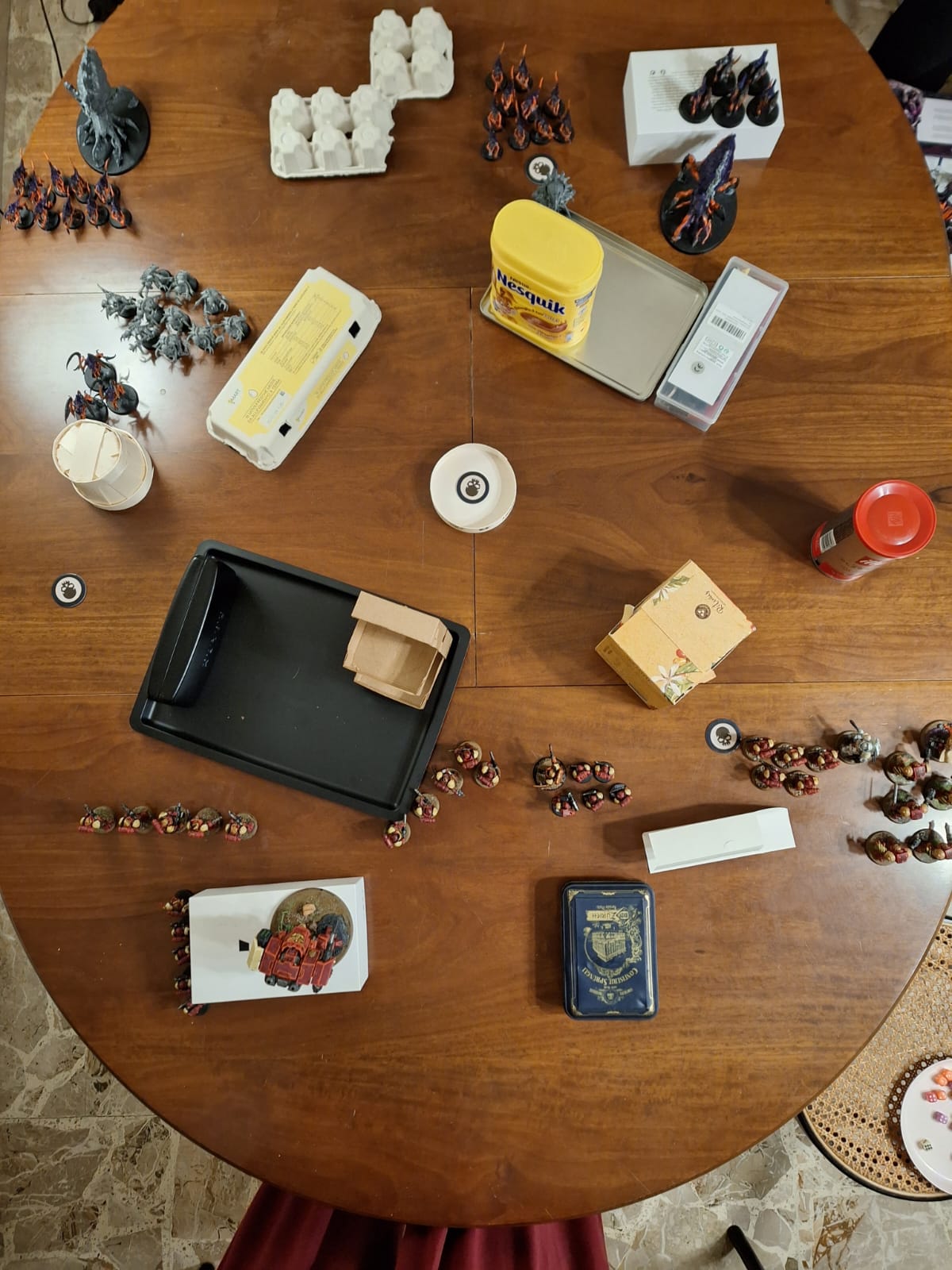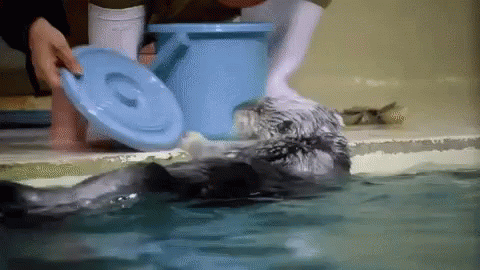Too old to rock’n’roll…
Some thoughts on the "early career scholar" label, as well as the usual links and otters
Hello, dear reader! I hope your 2024 has been going well so far, and that it improves if that’s not currently the case. It has been a while since I’ve last had an idea of something interesting to write in this newsletter. To be honest, I’m still waiting for a good substantive idea for an essayistic issue. While it doesn’t come, today’s issue will feature a personal note followed by the usual content: reading recommendations, academic opportunities, and an adorable otter. As usual, do not hesitate to skip ahead according to your interests!
By the time I sent the previous issue, I was feeling quite frustrated with my writing. So, I decided to take a break over the holidays and force myself to rest. No attempts to catch up with late reading, no work on side projects. I hated that, but my body and mind needed a few days off. Fortunately, I had the time to give it to them. As I am not an outdoors-y person, this involved lots of For All Mankind, Warhammer 40k, and Fleetwood Mac (usually one at a time).

After that, I could go back to my favourite approach to overcoming mental fog: constructive procrastination.1 I could spend some time on a research thing that is not at all connected to my thesis, but gave me some ideas on how to present my arguments in a relevant way. By the time I returned to the manuscript, it almost felt like I had something interesting to say.
Hopefully, the fact that my brain now seems to be able to concatenate two ideas together will be reflected in future issues of this newsletter. There are many themes in my list of things I want to cover, and that list is unlikely to get any shorter now that we have an (almost) final version of the AI Act. In the meantime, I will use my birthday as an excuse to think a bit about what it means to be an early career scholar.2
…too young to whine
As you read this, I am starting my 34th year on Earth. This would’ve come as a surprise to teenage Marco and to 20-something Marco—for wildly different reasons—but I somehow made it this far. More than that: my life is better than it has ever been, both in personal and professional terms, and I look forward to what the future might bring.3 Nonetheless, today I want to talk about one awkward thing about my chosen career path: the fact that I am at an early stage in it.
Because I am still working on my PhD,4 I am eligible for various opportunities aimed at “young scholars” or “early career researchers”. In fact, such events and calls for papers have helped me a lot so far. They allowed me to meet other doctoral researchers (and often post-docs, too) working on interesting topics. And they allowed me to produce work that I enjoyed and was published by a few interesting venues. Still, I must admit I feel a bit weird whenever I apply to one of those.
For the most part, this awkward is not an issue with the calls themselves. Many of them are formulated in language that is well aware that people take a variety of paths to academia. Some of them even walk the talk and allow people to justify why they count as an early career researcher, accounting for “deviations” from the idealized path that, under the Bologna process, leads many people to finish their PhDs in their mid-twenties. Other places adopt criteria that, while excluding me, remain clear enough so that I don’t waste time applying. There are certainly discussions to be had about how to foster collaboration between scholars at similar points in the career without falling into direct or indirect age discrimination. I am not particularly qualified to carry them out.
What I can talk, instead, is about my personal source of awkwardness. Every time I fill in a submission for such a call—and I tend not to let my weird feelings get in the way of a good opportunity to which I am formally eligible—I am reminded that I’ve been doing research for a while now. In fact, most of my experience as a researcher pre-dates my legal education. My first academic presentation and my first peer-reviewed publication both came during my computer science education,5 and even before that I had some experience as a research assistant in history and some early exposure to research in mathematics.6 So, in a way or another, I have been doing academic research for more than ten years now.
This is not to say that I am in the same position as somebody with 10-15 years of experience as a legal scholar. Certainly not in financial terms, as my bank account can tell, but my maturity as a legal scholar is also affected the kind of experience I’ve got. Changing disciplines (as I’ve done more than once in my academic path) required me to learn entirely new sets of research skills and languages, much of which was developed while also working full-time and/or studying for the bachelor of laws, and working on EU law has been a peculiar transition.7 Furthermore, my PhD has not been a learning experience just in terms of research substance, but also of techniques and methods to research. Because of this, I feel it is still reasonable for me to avail myself of opportunities aimed at early career scholars, even though something in the back of my head still feels like I’m cheating when I do so.
Is this rant just an overly long humble brag? Perhaps so, as I wouldn’t beat charges of vanity even in front of the most favourable of juries. Yet, I’m surely not the only one in this situation, so I thought it would be interesting to articulate my thoughts on a label that irks me a bit. If you are an early career scholar with a complicated relationship to that label, too, I’d be happy to learn more about how you navigate it.
As for myself, this is enough oversharing for today. Let’s move on to the rest of the issue.
Recommendations
Here are a few materials that I’ve come across since the last issue and that might be of interest for you:
- Michal Bobek, ‘Why Is It Better to Treat Every Provision of EU Directives as Having Horizontal Direct Effect?’ (2023) 39 International Journal of Comparative Labour Law and Industrial Relations 211
- Gijs Jan Brandsma and others, ‘Inside the Black Box of Trilogues: Introduction to the Special Issue’ (2021) 28 Journal of European Public Policy 1 (and the special issue itself)
- Marta Cantero Gamito, ‘The Influence of China in AI Governance through Standardisation’ (2023) 47 Telecommunications Policy 102673
- Jevan Hutson and Ben Winters, ‘America’s Next “Stop Model!”: Model Deletion’ (2024) 8 Geo L Tech Rev 124
- Brice Laurent, European Objects: The Troubled Dreams of Harmonization (The MIT Press 2022)
- Francesca Palmiotto, “Scoring” for Data Protection Rights: The Court of Justice’s First Judgment on Article 22 GDPR (Case C-634/21 and Joined Cases C-26/22 and C-64/22) (EU Law Live, 9 January 2024)
- Luke Stark, ‘Artificial Intelligence and the Conjectural Sciences’ (2023) 8 BJHS Themes 35 (as well as other works in the same special issue)
In addition to these more formal recommendations, people interested in software might want to take a look at The Architecture of Open Source Applications. In these two books, made freely available online, the authors behind open-source projects of various types explain the rationale behind their decisions.
Legal folks, on the other hand, might like to know that Paul Ohm, Margot Kaminski, and Andrew Selbst have announced they are working on a casebook for AI law. Though, of course, its treatment is centred on US law, the authors’ previous work suggests the book will be useful for people working in other jurisdictions, too. The table of contents and some of the readings are already available at the book website.
Opportunities
My former colleagues from DigiCon are organizing their School on Digital Constitutionalism, which will take place from 13 to 15 March in Florence. Applications are due by 29 January.
Applications for the PhD in Law at the EUI are open until 31 January. I encourage you all to apply, especially candidates from outside Europe. Those interested in law and technology, in particular, should look into the ASPIRE program.
The 19th ESIL Annual Conference will take place in Vilnius, Lithuania, on Thursday 5 and Friday 6 September 2024, having as its theme Technological Change and International Law. Proposals for presentation should be sent by 31 January.
The folks from Amsterdam’s IVIR are organizing a hybrid seminar series called Interrogating power in critical digital technology research and practice. The seminars meet on 14 and 28 February and 13 March, and the organizers are looking for contributors (whose work will be discussed), discussants, and participants. Expressions of interests for all three roles can be sent until 31 January.
The folks from the CZS Institute for Artificial Intelligence and Law at the University of Tübingen are organizing a Summer School on AI and Law from 13 to 17 May. They accept applications from PhD researchers until 31 January, and selected participants will have their travel and accommodation expenses covered.
The European Commission has an open Call for Evidence on the application of the GDPR in the Member States. Contributions can be sent until 8 February.
The Paris Conference on AI & Digital Ethics welcomes submissions on computational philosophy and social sciences, ethics and moral philosophy, political theory and science, international relations, and law, with a focus on “mutations of democracy in the era of AI, especially generative AI and frontier models”. 500-word abstracts, accompanied by a short bibliography of 5 works, should be sent by 22 February, with the event taking place on 6 and 7 June.
The Jean Monnet Centre of Excellence JUST AI at Liège is organizing a summer colloquium on Individual safeguards in the era of AI: fair algorithms, fair regulation, fair procedures. 500-word abstracts should be sent by 15 March, and the event itself will take place in Brussels on 24 and 25 June.
Finally, the otter
Thanks for reading, and I hope to see you around! Please consider subscribing if you haven’t done so already, and feel free to email me if you want to follow up on any of the topics covered in my newsletters.

“Marco, you need to finish your thesis. Why not accept an unrelated short-term project?” ↩
It’s my party, after all. ↩
Especially job offers, at this stage. If you are hiring for an entry-level professorship that is roughly Marco-shaped, please let me know! ↩
Hopefully not for long. ↩
I would recommend you do not check them out, even if you happen to find my more recent production interesting. ↩
Thanks to a junior research grant offered by CNPq (Brazil’s national research funder) to medallists in the Brazilian Math Olympiad for Public Schools. ↩
Though I believe it was a successful one. ↩




